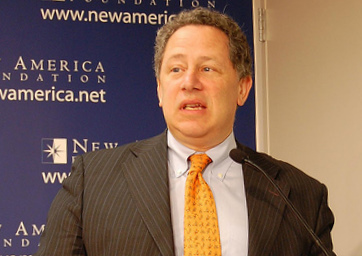
[digg-reddit-me]Everyone seems to have forgotten why it was we all first became involved in his personal life: that car crash in the early morning hours after Thanksgiving. Public opinion has coalesced around the conclusion that Tiger Woods was the victim of domestic abuse – that his wife became enraged upon discovering he was unfaithful and attacked him; and that when he tried to flee, she attacked his car with a golf club leading to his crash – during which he also may have been disoriented by a blow to the head. He was saved apparently by a call to 911 by one of his neighbors. We do not know what transpired here with any certainty. All we have are some alarming facts which everyone from late night comics to pundits seem to agree suggest an enraged spouse.
And yet, the lesson we are being asked to take is not that domestic abuse is unacceptable under any circumstances, but as Maureen Dowd opines:
Tiger ignored the obvious rule: Never get involved with women who have 8-by-10 glossies.
Or, as the Christian Science Monitor’s editorial board wrote:
The moral of the Tiger Woods story is that adultery leaves a trail of destruction. It can be avoided.
Or perhaps this from Bill Shuler at Fox News:
The issue of private sin is not exclusive to Tiger Woods. It is an epidemic in America.
Or any of a hundred variations on these lessons by pundits and late night comics.
Yet who asked Chris Brown why he beat Rihanna? It doesn’t matter if she was cheating on him or what ever else she might have done to lead to him beating her. As a society, there was broad agreement that what he did to her was wrong and that it should be condemned. Chris Brown’s career has likely been trashed, and good riddance, while Rihanna’s has gone on.
Why is it different for Tiger?
Why did the story move from the details of the events of that early morning quickly to what he did to provoke his wife?
The implicit message seems clear: if a man hits a woman, no matter the provocation, it is wrong; if a woman hits a man, he probably deserved it. This is simply sexism, and part of the legacy of gender discrimination in which women were regarded as weak and inferior. While overall, men do more damage in violent attacks on their partners, domestic violence by women is a serious issue as well, despite the sexist attempts to write it off.
All this reminded me of a story ABC News did several years ago – in which, after they had done several segments simulating male-on-female domestic violence in a public setting, and found that many people intervened, it occurred to the producers to try the opposite. ABC News staged female-on-male violence – and over several hours 163 people walked by, one of whom eventually intervened. Several made gestures supportive of the woman. Almost all the women assumed that the man had did something wrong, that he deserved what he got – which was not what they would assume if a man had been attacking a woman. As one woman recalled her reaction:
“Good for you. You Go, Girl!” is how Lynda recalls her reaction.
“I was thinking he probably did something really bad,” she said. “Maybe she caught him cheating or something like that…and [it] made her lose it and slap him in the face. I reacted like, ‘Yes. Woman power.'”
The story is on YouTube as well. Watch for the gleeful reaction of Lynda as she sees the woman hitting the man.
The academic experts on gender violence I have contacted pointed out that academic studies have demonstrated this same point, as this chart sent to me by a professor of sociology shows:

Tiger was taken the hospital with what were described by those at the scene as “serious injurious” including lacerations to his face. He was in and out of consciousness, woozy, seemingly from head trauma. But, the news coverage has focused almost exclusively on why he was beaten – on his adultery, on his wife demanding and getting more money from him.
I don’t blame feminists for this. I blame latent sexism, the vestiges of a patriarchy that protected women because it considered them weaker. But the question that arises is clear: Are women to be the only beneficiaries of a feminist revolution that seeks women’s empowerment by any means necessary, even by hypocritically accepting the benefit of patriarchal assumptions if they benefit women? Are men to be mere victims of this feminism? Or is feminism about transforming society for the better for men as well as women?
If feminism is about more than mere rooting for women, if feminism is about more than genitalia, then feminists should be condemning Tiger Woods’ wife as loudly as they condemned Chris Brown. Perhaps some are. I don’t mean to call everyone out. (desifeminists on the Feministing Community page sees what I mean.) But the loudest voices have been gossips and busybodies who gather around every scandal. Where are you Jessica Valenti? Where are you Feministing, which so loudly (and rightly) pointed out that it didn’t matter what Rihanna was supposed to have done?
Violence against women is abhorrent and should be condemned. It’s time to take on the patriarchal attitude that a man hit by a woman probably deserves it. It’s time to stand up for victims of domestic violence, even if they are men, even if they are Tiger Woods.
[Image by Keith Allison licensed under Creative Commons. Graph taken from “When a Man Hits a Woman: Moral Evaluations and Reporting Violence to the Police” by Richard B. Felson and Scott L. Feld in the journal Aggressive Behavior, Volume 35, page 484.]







